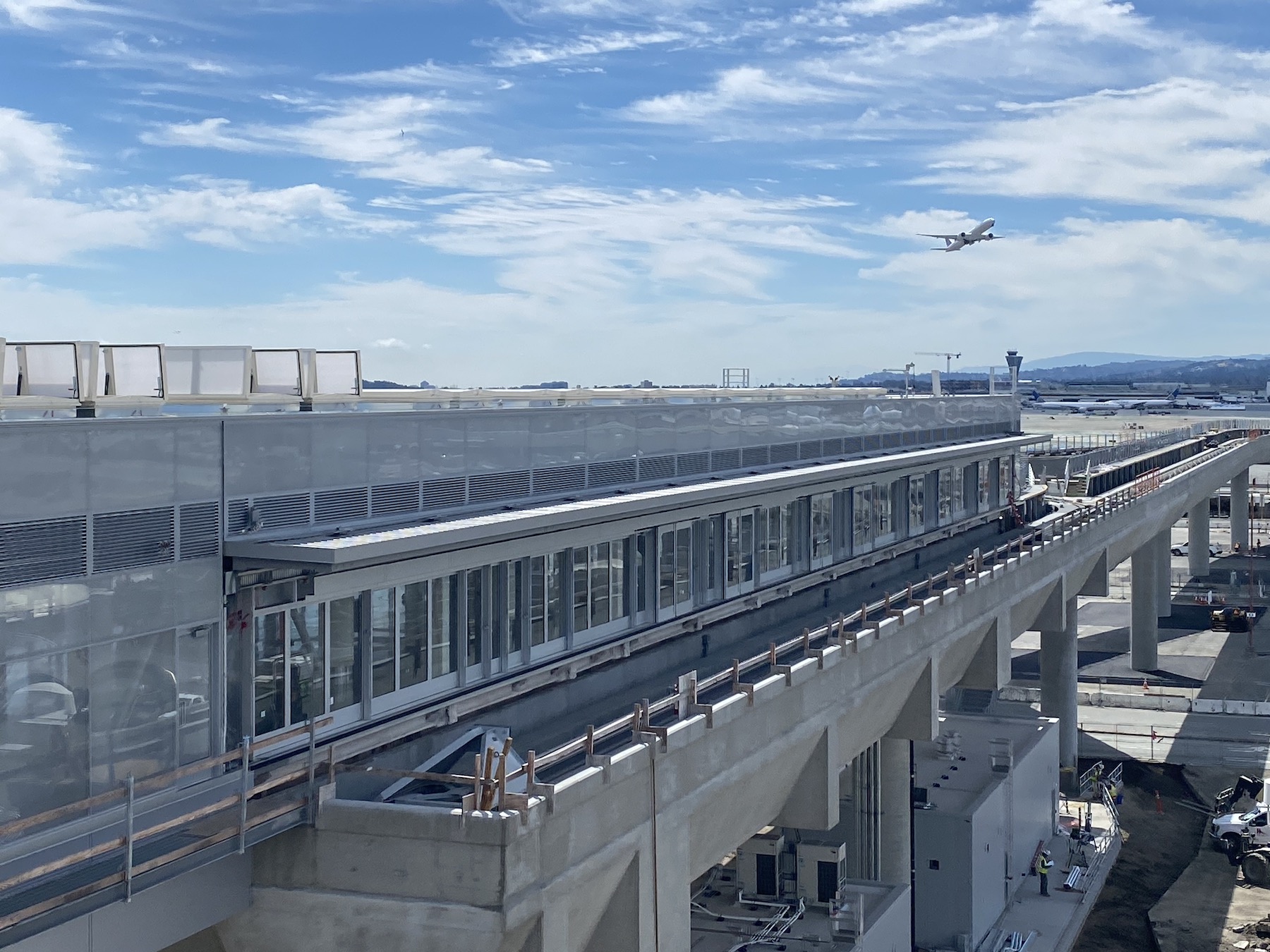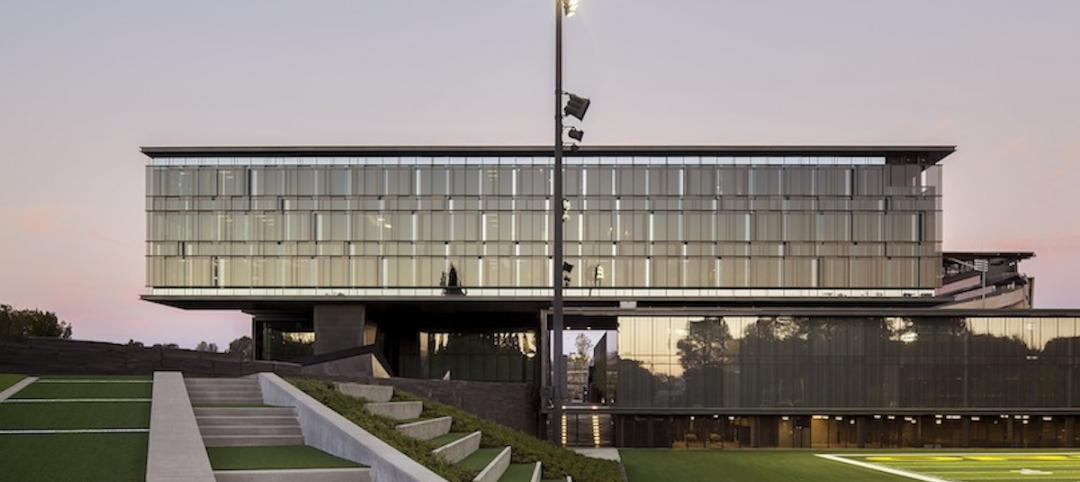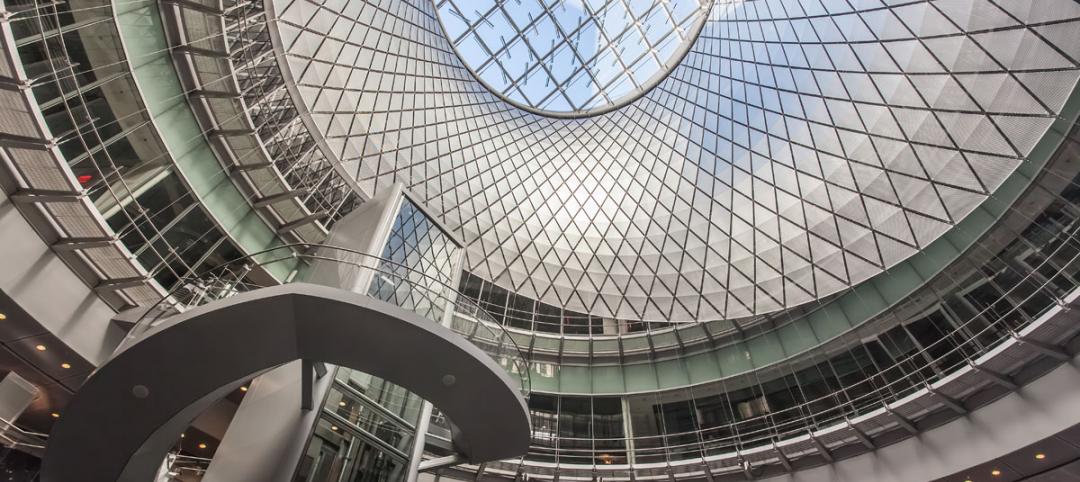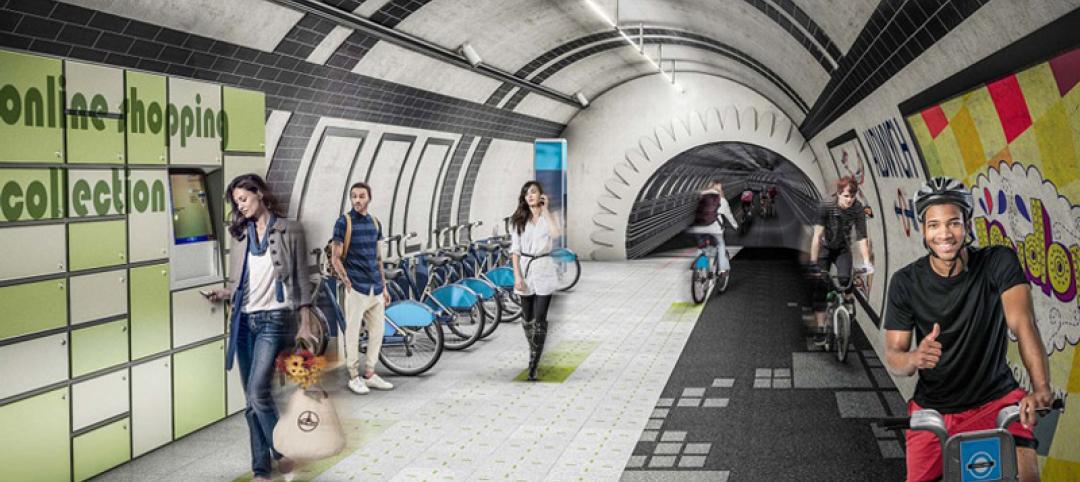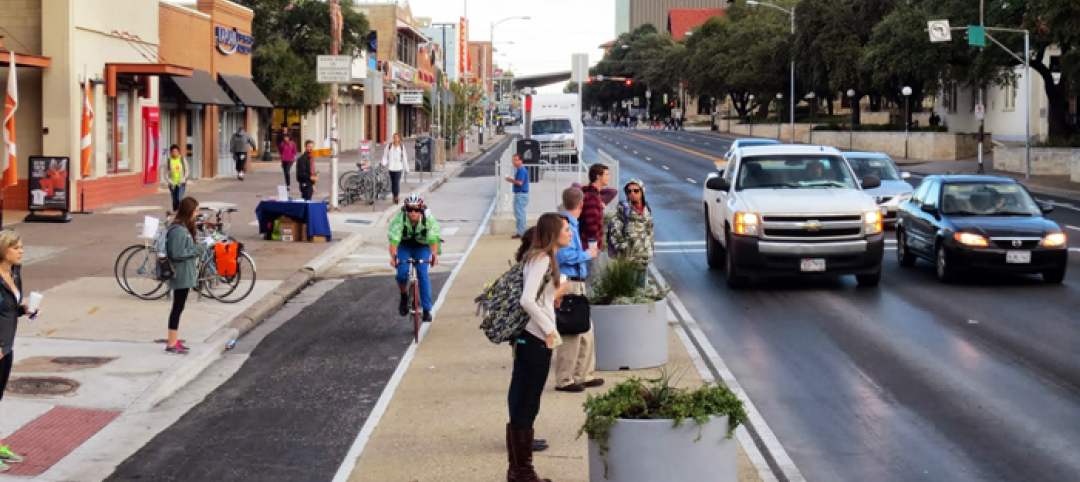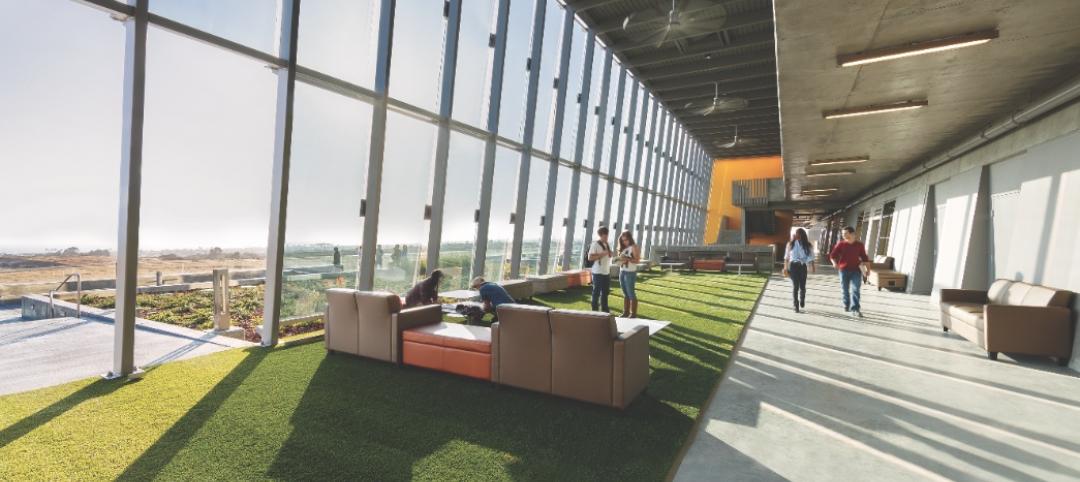In May, the San Francisco International Airport completed the extension of its AirTrain people mover system to its Long-Term Parking area. At that point, the AirTrain provided connectivity between all terminals, parking garages, an on-airport hotel, the city’s subway system, and the airport’s car rental center. Previously transportation between the long-term parking lot and the terminals had been provided by shuttle buses, and AirTrain’s extension is projected to eliminate 600,000 miles of trips annually, according to the airport.
This $259 million project, which launched in August 2016, extends the AirTrain guideways by 1,900 ft to reach the long-term parking lot. The project included the construction of two new AirTrain stations, each of which built under a $172 million progressive design-build contract with Skanska USA and WSP. The first station, located at the on-site Grand Hyatt hotel, opened to the public on October 2, 2019; the second station, with a pedestrian bridge that connects AirTrain to one of two Long-Term Parking multilevel garages, opened on May 5 of this year.
VERY GREEN STOPS
The construction project’s highlights include the installation of a 2,700-panel PV array on the roof of the long-term parking garage that will generate about two-fifths of the stations’ annual power needs. Water-efficient fittings and fixtures will cut the stations’ water use by 40%. Three-quarters of this project’s construction and demolition debris were recycled. The stations’ indoor air quality complies with LEED air quality assessment standards (prior to occupancy).
In total, more the 50 sustainable practices were implemented as part of the construction of the stations, which were certified LEED Gold in September. “Achieving LEED Gold certifications demonstrates our commitment to employing sustainable practices on every project we undertake,” said Tony Taddeo, Senior Vice President of Operations for Skanska USA Civil.
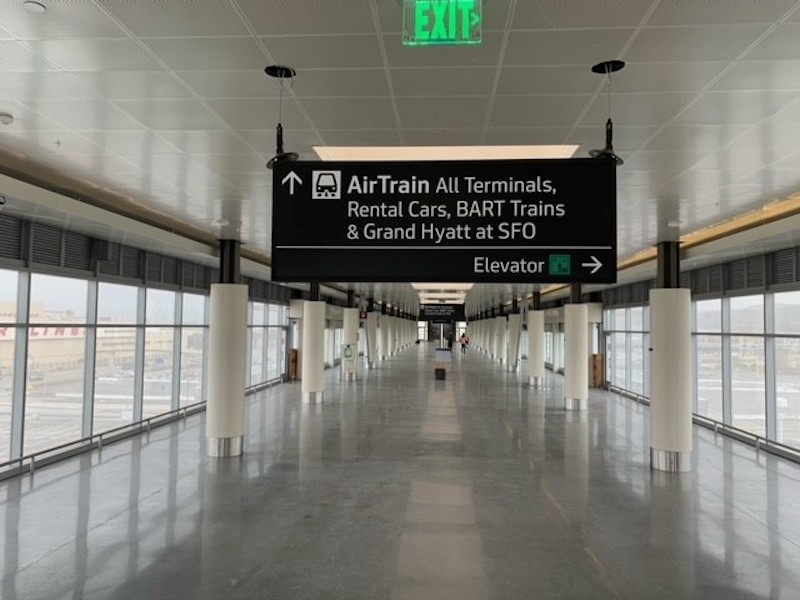
PGH Wong was its construction manager on the AirTrain extension project.
AirTrain, which has been in operation since 2003, currently consists of 41 electric vehicles that run along six miles of fully automated concrete guideways.
Related Stories
Structural Materials | Mar 30, 2015
12 projects earn structural steel industry's top building award
Calatrava's soaring Innovation Science and Technology Building at Florida Polytechnic University is among the 12 projects honored by the American Institute of Steel Construction in the 2015 IDEAS² awards competition.
Transit Facilities | Mar 4, 2015
5+design looks to mountains for Chinese transport hub design
The complex, Diamond Hill, will feature sloping rooflines and a mountain-like silhouette inspired by traditional Chinese landscape paintings.
Sponsored | | Mar 3, 2015
New York’s Fulton Center relies on TGP for light-flooded, underground transit hub
Fire-rated curtain wall systems filled this subterranean hub with natural light.
Transit Facilities | Feb 12, 2015
Gensler proposes network of cycle highways in London’s unused underground
Unused tube lines would host pedestrian paths, cycle routes, cultural spaces, and retail outlets.
Transportation & Parking Facilities | Feb 11, 2015
11 of the nation’s best ‘Complete Streets’ policies of 2014
Austin, Texas, and Troy, N.Y., are among the cities with the strongest safe streets policies, according to a new report.
Airports | Feb 6, 2015
Zaha Hadid-designed terminal in Beijing will be world’s largest
The terminal will accommodate 45 million passengers per year, and will be a hub for both air and rail travel.
Transit Facilities | Feb 4, 2015
London mayor approves plan for a bicycle highway
The plan will guarantee bike riders a designated stretch of street to ride from east to west through the city.
| Jan 17, 2015
When is a train station not a train station? When it’s a performance venue
You can catch a train at Minneapolis’s new Target Field Station. You can also share in an experience. That’s what ‘Open Transit’ is all about.
| Jan 2, 2015
Construction put in place enjoyed healthy gains in 2014
Construction consultant FMI foresees—with some caveats—continuing growth in the office, lodging, and manufacturing sectors. But funding uncertainties raise red flags in education and healthcare.
| Dec 28, 2014
AIA course: Enhancing interior comfort while improving overall building efficacy
Providing more comfortable conditions to building occupants has become a top priority in today’s interior designs. This course is worth 1.0 AIA LU/HSW.


